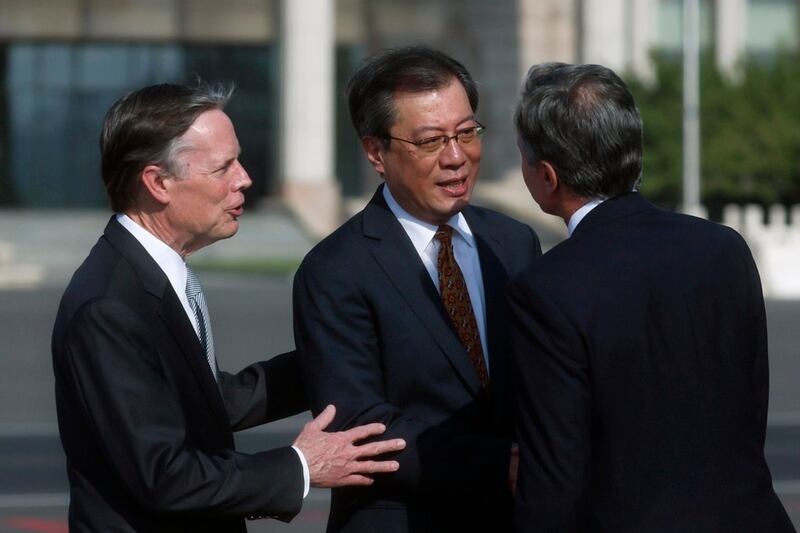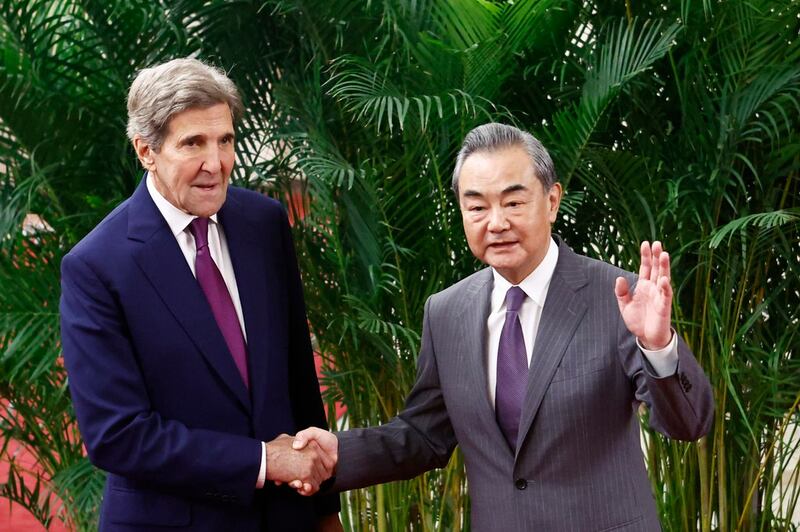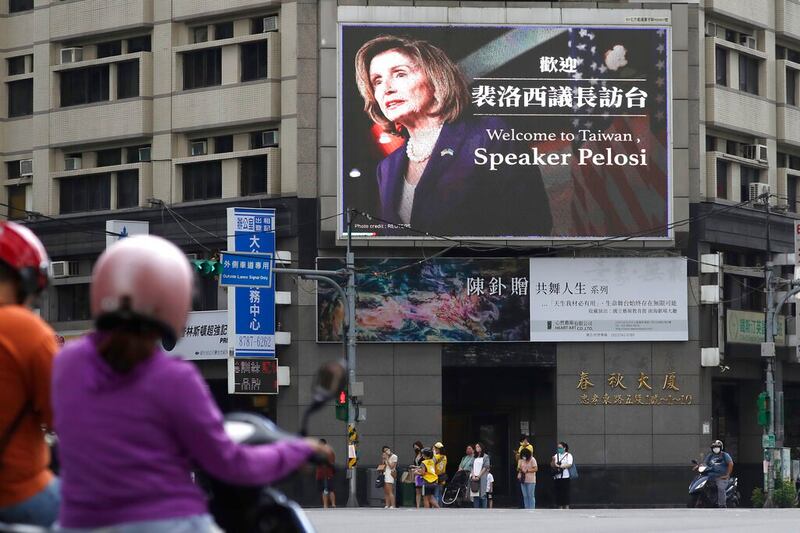Amid a slow-building thaw in relations, U.S. and Chinese diplomats appear to be laying the groundwork for a visit to the United States by China’s recently reappointed Foreign Minister Wang Yi, with Beijing’s top North America diplomat visiting Washington on Monday.
Yang Tao, the director general of the North American and Oceanian Affairs Department in China’s Foreign Ministry, met with U.S. Assistant Secretary of State Daniel Kritenbrink and Sarah Beran, senior director for China and Taiwan Affairs on the White House’s National Security Council, according to a readout from the U.S. State Department.
"The two sides held a candid, substantive, and productive discussion as part of ongoing efforts to maintain open lines of communication and responsibly manage the bilateral relationship," a readout from the State Department said, noting the meeting followed Blinken and Wang's meeting in Jakarta on the sidelines of an ASEAN summit.

Yang's trip mirrored one taken by Kritenbrink and Beran to Beijing a week before U.S. Secretary of State Antony Blinken's visit to Beijing was announced in June. But that meeting also included Ma Zhaoxu, China's executive vice foreign minister, who did not join this time.
Wang not Qin
The visit by Yang also follows speculation about return visits to Washington by senior Chinese officials after Blinken and a number of other Biden administration cabinet officials made trips to Beijing.
Besides Blinken, U.S. Treasury Secretary Janet Yellen and climate envoy John Kerry have also visited counterparts in China's capital, and U.S. Commerce Secretary Gina Raimondo has said she plans to make the trip sometime this summer, with a late August trip rumored.

But last week's ouster of Qin Gang – a former ambassador to the United States and China's foreign minister from December until last Tuesday, when he was suddenly dumped amid rumors of an affair – had cast some doubts on the prospects for a visit to Washington.
U.S. State Department spokesman Matthew Miller, though, has downplayed any impact on the thaw between Washington and Beijing from Qin’s ouster, calling it an internal matter for China.
On Tuesday, he said an invitation to visit Washington accepted by Qin during Blinken's trip to Beijing was transferable to Wang, who has resumed the role he previously served in from 2013 to 2022 while continuing in his new job as head of China's Central Foreign Affairs Commission.
“In the meeting yesterday, we extended the invitation that had previously been made to the former Foreign Minister Qin Gang, and made clear that that invitation did transfer over” to Wang, Miller said at a press briefing, referring to Yang’s meeting in Washington.
But the spokesperson said there were no firm plans made.
“I’ll let the Chinese Government speak to their side of it,” he said. “We certainly expect that it is something that they would accept, and it’s a trip that we expect to happen, but we have not yet scheduled a date.”
Working groups
The cooling in U.S.-China ties follows nearly a year of rising tensions that began last August with then-House Speaker Nancy Pelosi's trip to Taiwan and peaked during February's spy balloon incident, which led Blinken to cancel a trip to Beijing hours before he was set to leave.
During that time, meetings between senior U.S. and Chinese officials dried up – most prominently including those between military leaders – leading lower-level officials also to avoid working meetings.

U.S. officials like Blinken, Kerry and Yellen have since said their goal with trips to Beijing is just to reopen those channels of communication after a year of increasing silence, with "deliverables" to come later.
Bonnie Glaser, a China expert and director of the Indo-Pacific program at the German Marshall Fund of the United States, said it was possible Yang’s trip was to smooth the way for Wang to visit to Washington, but said it could also be an effort to move on now to the deliverables.
“The U.S. is using cabinet-level meetings to try and open the door to working-level discussions, while at the same time having high-level meetings, like between Wang Yi and Jake Sullivan,” Glaser told Radio Free Asia, referring to the U.S. national security adviser.
She noted that Raimondo, the U.S. commerce secretary, and Yellen, the treasury secretary, both expressed hope their visits to Beijing would open the door to a return to working-level meetings of junior officials.
“Maybe the State Department is doing something similar, with Blinken meeting with his counterpart, who is now Wang Yi, and then having some of his staff try to have working-level meetings,” she said. “It may be more that it’s going from the top, down to the bottom, rather than the bottom preparing for higher levels, if you see what I mean.”
